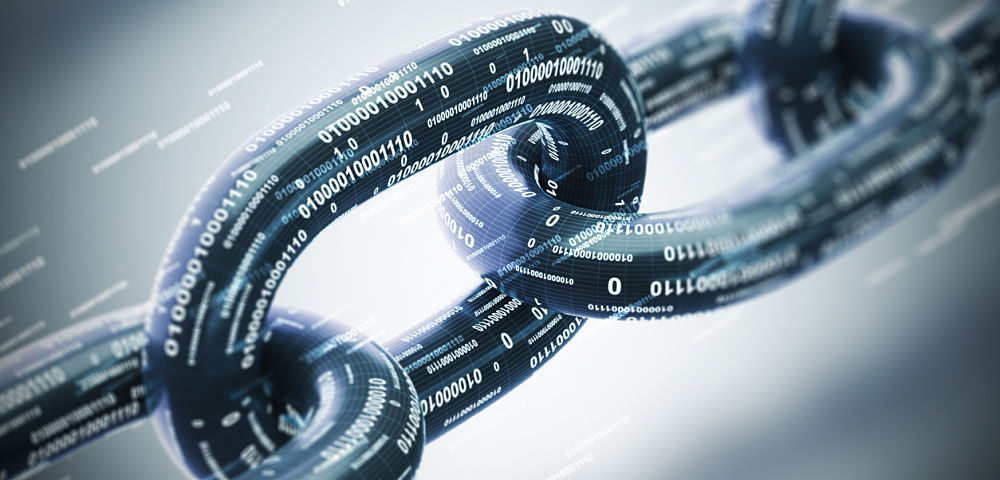5 Ways the Blockchain Revolution Will Affect Everyday Life
Imagine how your life would change if you were forced to travel back in time to the early ’90s. George H.W. Bush is the president of the United States, Sinead O’Connor, Madonna, and Phil Collins hold spots in the Billboard Hot 100, and, most importantly, the internet barely exists.
The way day-to-day life happened in the the year 1990 differs dramatically from the way it does nearly three decades later. Heated arguments over random bits of trivia couldn’t be solved by querying a massive index of global information.
Informational resources were limited to corporate controlled news outlets across TV, radio, newspapers, and books. As a result, your voice as an individual wasn’t heard unless you had the credentials required to use these mediums, and if you did, the message being delivered was a part of an agenda, not a means of individual expression.
The internet completely transformed the way we communicate with each other and express ourselves in more ways than we could have possibly imagined back when news anchors struggled to grasp what the internet was.
Now, with hype behind blockchain technology continuing to rise, we find ourselves facing another technological revolution poised to shape the future of how we interact with one another. Just as we could have never pictured the eventual creation of Netflix (SNAP) or Snapchat (SNAP) during the days of the ARPANET, it would be silly to assume we could possibly predict blockchain’s killer applications this early on.
That doesn’t mean that we can’t speculate on potential use cases for blockchains. The secret is out: blockchains are among the most talked about technologies right now. Founders and CEOs across the globe are trying to come up with novel ways their companies can integrate blockchains into their workflow and join the blockchain revolution. There are already several incredible use cases being worked on today that have the potential to change the way our society functions.
1. Sending Money Faster, Cheaper
When is the last time you made a bank transfer? If it was anytime in the past week and change, chances are that transfer is still processing. The way bank payments trickle through the ancient banking infrastructure of today is insulting when contrasted to the dramatic progress made elsewhere over the past couple of decades.
Cryptocurrency, the virtual currency enabled by blockchains, can universally settle payments in an hour or less. Cryptocurrency isn’t closed on weekends, and doesn’t care where its users are from. Crystals, a rising platform for models, utilizes its own CRS token as a means of payment within the modeling industry, where models are scattered all around the world, completely avoiding pesky currency conversion fees and long settlement times.
2. Incentivizing Scale
It’s only a matter of time until we see a blockchain-based social network take off. Blockchains bring all the necessary ingredients to the table: censorship resistance, decentralization, and incentive structures. It’s that last ingredient that will serve as the special sauce in bringing the first major blockchain-based social network to life. Blockchain tokens encourage early adopters economically through the promise of profits via increased token value.
It’s this way that blockchains will solve the “chicken and the egg” marketplace problem, enabling a faster path to popularity for newly created platforms. While many decentralized blockchain powered social networks have sprung up so far (such as PeepETH), none have come close to surpassing their centralized alternatives – yet.
3. Power Is Going Back to the People
In the current era of the internet, your data does not belong to you. Social networks, and other web services, build “free” platforms in an effort to entice users to trade their data in exchange for using their product. It’s commonly known that if you’re not paying for the product, you are the product.
This poorly kept secret is finally beginning to cause concern as a result of the recent Facebook scandals. While today we’re forced to rely on the ethics of the companies we choose to trust, in the future, we’ll be granted possession of our personal data, with the option of sharing it with whitelisted companies.
4. Tokenizing Brings Democracy
Blockchains enable the ability to digitize physical assets via tokens. Maecenas is democratizing access to fine art, granting the average Joe or Jane the opportunity to buy shares in famous paintings.
Never in your wildest dreams would you have been able to claim ownership to the same pieces of art Jay-Z brags about in his music, but thanks to the blockchain, doors are opening up for the everyday average person.
5. Trust and Transparency: Don’t Trust, Verify
Public blockchains completely eliminate the need to trust middlemen. Instead, you simply trust the math behind cryptography, guaranteeing the ownership or authenticity of records, content, or transactions.
The implications of this are significant: using the blockchain you will soon be able to verify your steak did in fact come from an organic grass-fed farm, that the charity you donated to did in fact use your donation for the right reasons, or that the new house you’re about to move in to did in fact re-do its entire plumbing system a few years back. Blockchains won’t require you to trust anybody, you can simply verify their claims yourself.




